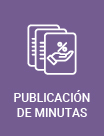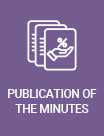The Leading Role of Bank Supply Shocks
The series Borradores de Economía (Working Papers on Economics) contributes to the dissemination and promotion of the work by researchers from the institution. On multiple occasions, these works have been the result of collaborative work with individuals from other national or international institutions. This series is indexed at Research Papers in Economics (RePEc). The opinions contained in this document are the sole responsibility of the author and do not commit Banco de la República or its Board of Directors.
Abstract
This paper studies the impact of the Covid-19 pandemic on corporate credit in Colombia. We first exploit the geographic and temporal variation in the disease spread to estimate the effect of local exposure to the virus on credit. Our estimates indicate that neither local exposure to the virus, nor the sector-specific mobility restrictions had an impact on credit. We then assess the role of bank supply shocks. We create a measure of bank exposure, reflecting the geographic heterogeneity in pandemic vulnerability and deposits, and estimate its effect on credit. Results indicate that bank-supply shocks account for a credit contraction of approximately 5.2%. To further disentangle the role of bank supply shock, we control for the interaction between firm and time fixed-effects and restrict the sample to municipalities that were relatively spared from the pandemic, finding similar results. Most of the bank supply effects are driven by firms that are small, young, and have relatively low liquidity.














.png)

































